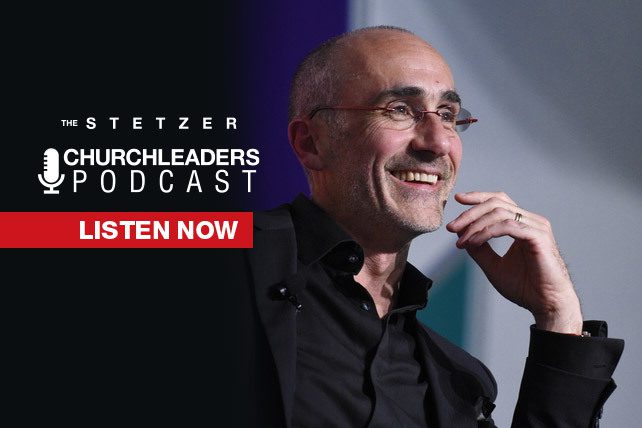Dr. Arthur Brooks is the William Henry Bloomberg Professor of the Practice of Public Leadership at the Harvard Kennedy School and Professor of Management Practice at the Harvard Business School. He has authored numerous books, including the 2022 No. 1 New York Times bestseller, “From Strength to Strength: Finding Success, Happiness, and Deep Purpose in the Second Half of Life.” His latest is “Build the Life You Want: The Art and Science of Getting Happier.”
Other Ways To Listen to This Podcast With Arthur Brooks
► Listen on Amazon
► Listen on Apple
► Listen on Google
► Listen on Spotify
► Listen on YouTube
Key Questions for Arthur Brooks
-What is the good news behind hearing that our professional decline is coming sooner than we think?
-How can church leaders find success and significance in a culture that wants a 40-year-old pastor with 40 years of experience and four doctoral degrees?
-Do people need to enter a midlife crisis in order to enter into the “second curve” of their lives?
-What are some roadblocks that keep people from thriving in the second half of life?
Key Quotes From Arthur Brooks
“I was trying to figure out what God’s plan was for me in the second half of my life and what I could actually do well, what I could actually get better at.”
“Why is it that people tend to go into professional decline? And the answer is not because you’re some sort of lazy loser. The truth is that there’s a form of intelligence called fluid intelligence that tends to be very high in your 20s and 30s and goes into decline in your 40s and 50s.”
“Fluid intelligence is high in working memory, high in indefatigable focus, your ability to solve problems, your ability to innovate.”
“[Crystallized intelligence] is an intelligence based on your wisdom, your accumulated knowledge, your ability to recognize patterns and your ability to teach. This happens and increases through your 40s, gets higher in your 50s, gets higher in your 60s and 70s and can stay high for as long as God gives you your marbles.”
“Anybody can actually be in a role where they are responsible for doing less of the innovation and more of the teaching. And the way to do that is to be a mentor to more people, to actually think about how you can identify and cultivate the next generation of talent, to think about how you can be less the glorified leader and more the good manager of other people.”
“How can you be less of a single star and more of a coaching leader? That’s what it comes down to, and everybody’s going to find their own way.”

